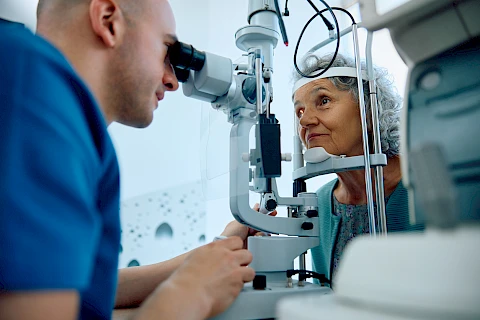
Diabetic Eye Disease Month is observed in November to highlight the link between diabetes and optical health. Diabetes mellitus is common in older adults and can significantly affect overall well-being, including eye health. I am committed to helping seniors and their caregivers manage challenges through senior diabetic retinopathy education and encouraging early action.
Senior Diabetic Retinopathy Education
Diabetes can have profound effects on optical health. High blood sugar can damage the vision of blood vessels, leading to issues like diabetic retinopathy, a major cause of loss of eyesight in seniors due to damaged retinal blood vessels. Additionally, people with diabetes may develop cataracts earlier, causing cloudy lenses, and are at a higher risk for glaucoma, which increases eye pressure and can harm the optic nerve, resulting in vision loss if not treated.
Recognizing Symptoms and Risks
Early detection of diabetic retinal disease is crucial, so be alert for symptoms like blurry eyesight, floaters, dark spots, and difficulty with night vision. These can be early signs that it's time to consult an eye care professional. Senior diabetic retinopathy education is necessary to understand the risk factors that increase the likelihood of vision problems. These include poor blood sugar control, high blood pressure, and high cholesterol levels. The longer a person lives with diabetes, the higher their risk of developing vision problems, making vigilance essential.
Preventive Measures and Management Tips
Managing diabetes plays a significant role in preventing optical problems. This can be achieved through a balanced diet, regular exercise, and proper medication. Consuming foods rich in omega-3 fatty acids, like fish, leafy greens, and nuts, supports vision health. Lifestyle changes, such as quitting smoking and limiting alcohol consumption, also benefit overall health and vision. Regular monitoring of blood sugar levels and following the prescribed medication regimen can significantly reduce complications.
The Value of Regular Vision Exams
Regular eye tests are necessary to detect optical issues early. Even if no symptoms are present, seniors with diabetes must undergo comprehensive optical examination regularly. Experts typically recommend these exams occur at least once a year. During an eye exam, the doctor will check for signs of diabetic retinopathy, cataracts, and glaucoma. Early detection and intervention significantly increase the chances of successful treatment and maintaining good eyesight.
Let Us Help You Manage Your Health
Senior diabetic retinopathy education emphasizes that handling and prioritizing health can help older adults maintain their vision and quality of life.
Do you need assistance keeping a healthy lifestyle? From medication management to diabetes-friendly meal preparation, we proudly serve seniors in Harleysville, Lansdale, Quakertown, and Worcester. Contact Senior Helpers Lansdale for empowering in-home support to help you live life fully at home.